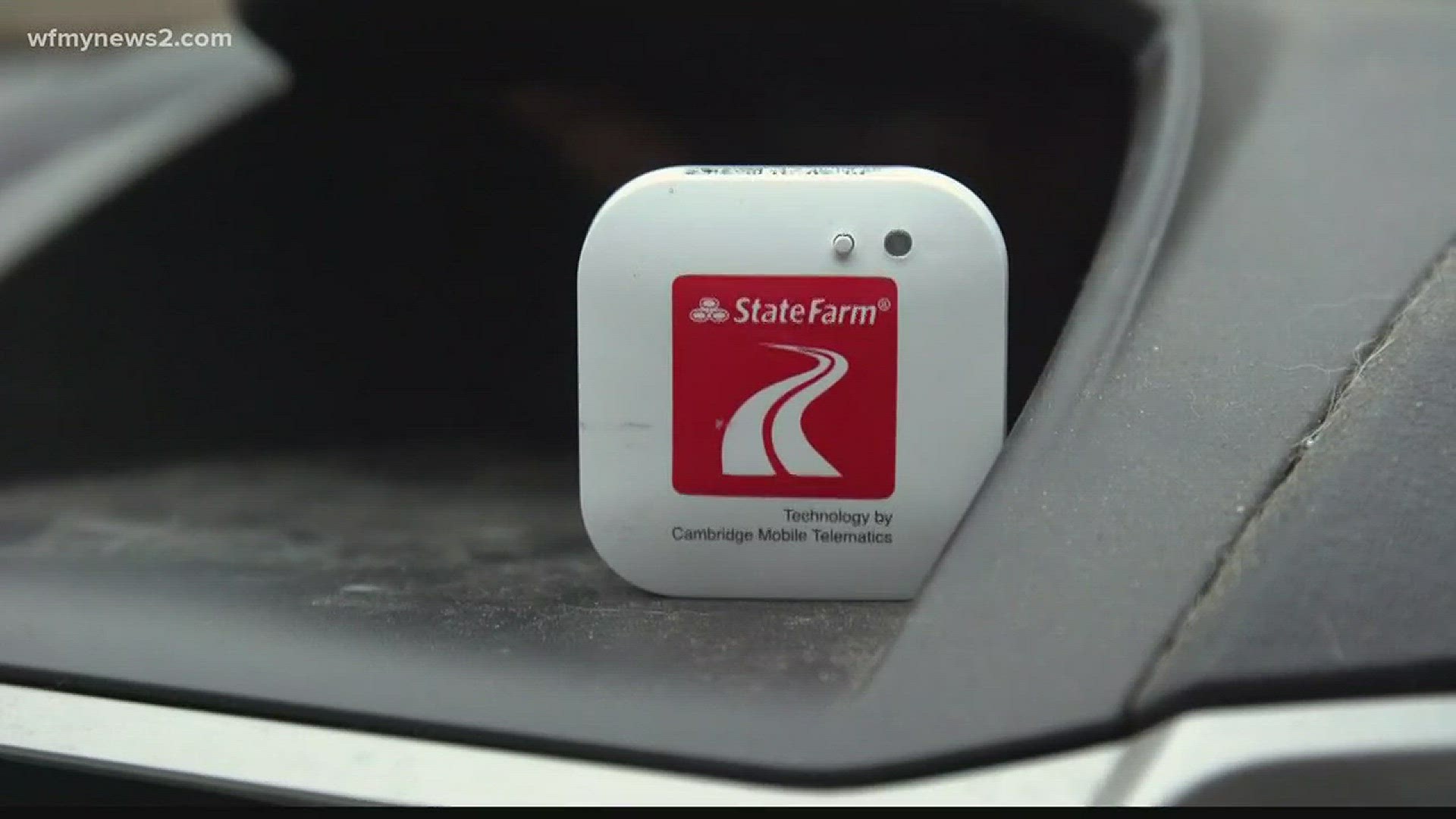PORTLAND, Ore. — You’ve probably seen the ads or maybe received a promotion in the mail. Auto insurance companies are offering discounts if consumers install plug-ins, beacons or phone apps that track their driving habits.
“I just really wanted to save some money,” said Leah Feller of Tigard, who signed up for the State Farm Drive Safe & Save Mobile program.
According to the State Farm mobile app, she can expect to save $23.20 on her auto insurance over six months.
“This is the device right here,” said Feller, pointing to a square beacon attached beneath her steering wheel. “It’s just held on with sticky tape.”%INLINE%
The beacon measures left turns, rights turns, acceleration, braking speed and the time of day that she’s driving. It connects to her phone app, which provides a letter grade between A and F based on her driving performance.
“Apparently, I need to be less aggressive on the gas. I’m a bit of a lead foot and I need to watch that. Otherwise, I think that I’m a pretty good driver,” said Feller after reviewing the feedback on her smartphone.
Various auto insurance companies are promoting their own version of sensors and smartphone apps. Allstate insurance has the Drivewise program, which runs through a phone app. Progressive has the Snapshot, which tracks driving using a small module that plugs into a port in your car.
The insurance companies are trying to entice customers with discounts, in hopes of getting more sensors into cars that allow them to size up risk.
“When you are an insurance company it is all about accessing risk. So, if I’m buying insurance, the company wants to know what kind of driver I am. How much risk do I pose?” explained Marie Dodds, director of government and public affairs at AAA Oregon/Idaho.
The programs are opt-in, which means customers decide whether to participate. Insurance companies suggest discounts range from 5 percent to 30 percent, based on your driving habits and performance.
“They can be good for some consumers, if they result in a discount for you or your family, but you have to look at the trade-offs,” said Dodds.
Privacy questions surround tracking apps
“I don’t think your car should be spying on you,” said Marc Rotenberg, executive director of the Electronic Privacy Information Center. “There is a line that is crossed when personal data is being collected, and we think for most drivers that may be a good time to put on the brakes.”
The privacy advocate fears insurance companies may be collecting more information than just driving habits. He says the data could be shared with others or subpoenaed in a criminal or civil case.
“What information about you is being collected? How is it being used? Who will have access to it?” asked Rotenberg. “There’s a lot of detail typically associated with these programs.”
Insurance companies say the security and privacy of their customers’ information is a top priority.
“While the type of data collected and utilized will differ by insurer, they strive to be clear and transparent in their privacy statements to allow consumers the ability to make informed choices and preserve the consumer trust they rely on,” said Angela Gleason of American Insurance Association, an industry trade group.
A study by the Pew Research Center found most consumers have concerns about the collection of personal data, like driving records.
The 2015 study asked: “Your insurance company is offering a discount if you agree to place a device in your car that allows monitoring of your driving speed and location. After the company collects the data about your driving habits, it may offer you further discount to reward you for safe driving. Would this be acceptable or not?”
Forty-five percent of respondents said they find the trade-off unacceptable. Thirty-seven percent said it would be acceptable -- they’d allow insurance companies to track their driving behavior for a discount. Sixteen percent said it depends on the circumstances.
“I never really think, ‘Oh, they’re tracking me,’” said Matt Hill of Salem.
Hill installed a beacon in his car last summer. It connects to Bluetooth on his phone.
“I’ve saved about $80 bucks since I joined,” said Hill. “It kind of makes me more conscious of the choices I make while driving.”

